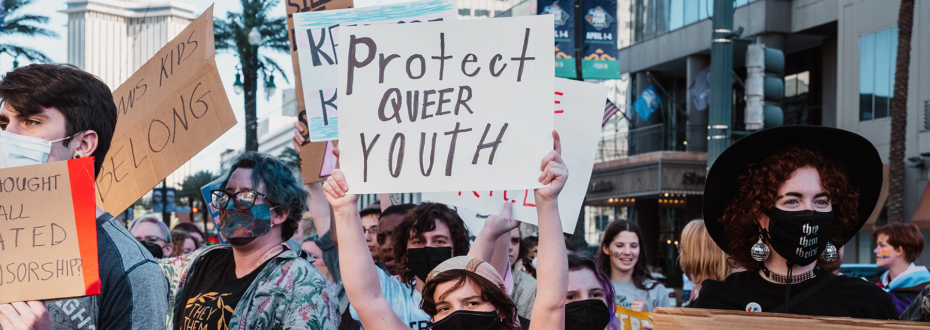February is LGBTQ+ history month, and I’ve been up the step ladder looking at my bookshelves, dipping into the annals, blowing off dust and flicking through books, some of which I’ve had for 30 years or more. There’s one about the magnificent polyamorous and bisexual writer Virginia Woolf and her comings and goings in Bloomsbury. There’s one about the trial of Oscar Wilde and the terrible time he spent in Reading gaol. There are several others about sex and sexuality over the centuries. And a book about gay star signs.
The books on the uppermost shelf are from the 80s and 90s and are specifically about AIDS. These are books I seldom look at but don’t want to lose. They detail the in-the-streets activism gay men and their allies pursued in the face of an initially indifferent pharmaceutical industry, a press that sought to demonise and castigate us, and politicians and clergy that used their privilege to denigrate and ostracise. They were hard times.
These books capture what happened, as it happened, and lay bare how the AIDS epidemic changed how we, as gay men, made sense of ourselves and our relationships. They focused on who and what we lost, on our collective grief, on how we bore witness to a public health catastrophe with very little help, on how we survived the moral panic, and tried to keep safe and well.
We found new ways to be intimate, new ways to fight, new ways to assert our presence.
As I read them, memories about how it was in those days, in real time, cascade down upon me. I feel them in my rapid breath, in the tears that well up in my eyes, in the involuntary bite of my bottom lip.
The impacts of AIDS were not confined to the pandemic. The feelings live on.
And yet there are far fewer books on my shelves about the aftermath for the gay men and their allies who made it – men now in their 50s and beyond – who lost friends and comrades, lovers and neighbours, struggling through it under a cloak of shame and fear.
I might not have the books, but I have my gay male friends and acquaintances. I look around and see the struggles that many of them have faced since – poor mental health, addiction, fractured relationships, loneliness – determined, at least in part, by the traumas we endured before clinicians and big pharma made the advances from which we benefit today.
The crisis extended onward for many, physically and mentally. And the legacy of those times is still strong.
Sometimes, thinking about history can be an antidote to the fragmentation of the present, a kind of refuge or escape. It is also a way of preparing for the future. Can we ever fully understand where we are if we don’t know where we’ve been? If we don’t know how we got here?
Perhaps this is one of the many benefits of knowing our history and telling our stories, especially for minoritised groups whose stories are seldom told.
This month, I can’t help but wonder about the long-term impact of the brutal murder of Brianna Ghey. In the here and now, the impact has been devastating for her family and friends and for young trans people the world over. It is another volley in the barrage of hate and disdain that they face day in, day out.
Like the homophobia of the 80s, I can’t help but wonder what the effects of such systemic transphobia today will be in decades to come. Will these days have a similar long-term significance for transgender people? Will this be a moment in which many lives are changed forever, perhaps irrevocably?
LGBTQ+ history suggests that it will. And so, a gentler, more inclusive approach, one based on love and compassion, is imperative. Our long-term mental health surely depends on it.



